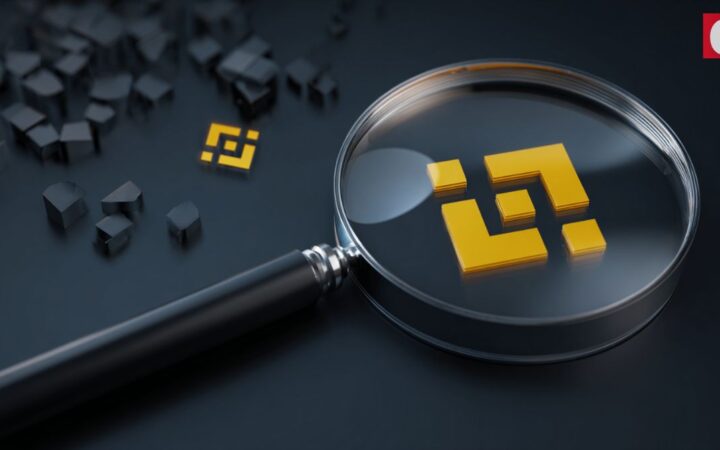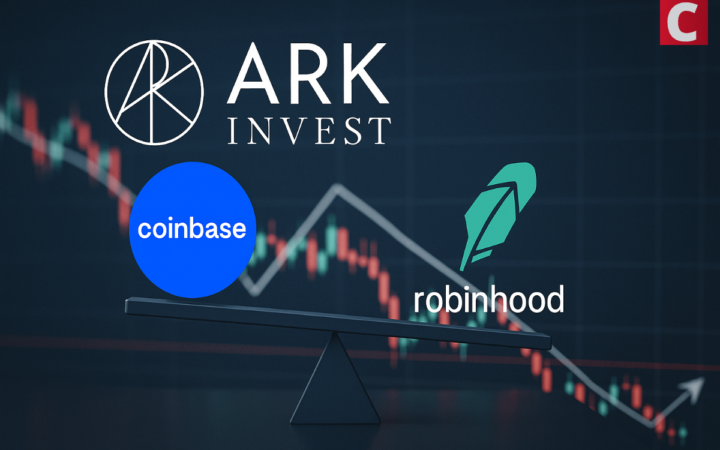
Please check out latest news, expert comments and industry insights from Coinspeaker's contributors.
By choosing the right tools, you’ll be much better equipped to navigate a market that is rightly considered by many traders to be a rollercoaster ride.
 Edited by Julia Sakovich
Updated
9 mins read
Edited by Julia Sakovich
Updated
9 mins read

There’s money to be made in trading crypto no matter which way the market is going. But successful trading involves much more than just going with your gut instinct. The best crypto traders rely on an arsenal of essential tools that support their investment strategies. They cover various areas, such as security, portfolio management, price movement analysis and even tax reporting, assisting investors at every step of the journey.
Smart investors know it’s mission-critical to ensure they have the best tools for each little job, so let’s have a look at what the best available options are in each category.
The very first concern for any crypto investor is to ensure their digital assets are safely stashed away, and that means keeping them in an ultra-secure wallet. With that in mind, know that the best crypto wallets offer advanced security features such as biometric authentication, two-factor authentication, and seed phrases.
Features are important too, as experienced investors will need a wallet that supports multiple types of cryptocurrency and different blockchains. Some investors may also require a wallet that enables DeFi activities such as staking, so they can earn yield on the tokens they choose to hold long-term.
Of course, user-friendliness is just as important, as an overly complicated wallet can cause frustration and even mistakes when sending and receiving funds. So it makes sense to choose one with a simple, intuitive UI that makes it easy to understand what you’re doing with each transaction.
With that in mind, it may make sense to use two different kinds of wallets. A hardware wallet such as Ledger’s Nano X or Trezor’s Model T is generally considered to be more secure and can be used for long-term “hodling”, as the assets are stored offline. However, for convenient access to funds they’re actively trading, most traders prefer to use a software wallet on their mobile devices. Some good ones include MetaMask, Coinbase Wallet, and Exodus Wallet, but bear in mind that any assets held within these wallets are always online, putting them at higher risk.
Crypto traders need access to a reliable platform where they can freely buy and sell their assets. Most investors will want to look for a crypto exchange platform with a friendly UI, lots of market data visualizations, and support for multiple order types and crypto assets.
The best crypto trading platforms assist investors with real-time market data and provide different options, such as spot trading, limit orders, and stop-loss orders, to name just a few. They’ll also provide features for tracking your portfolio and its performance.
Other features that may be important include automated trading tools or social trading functionality, where users are allowed to follow more experienced traders for a small fee per trade. With these kinds of tools, traders can slowly develop and execute their own strategies after learning from more successful users, while simultaneously managing risk.
The majority of crypto traders use centralized exchange platforms as these generally have more liquidity, meaning trades can be executed at accurately at the trader’s intended price. The downside is users are required to entrust their crypto assets with these centralized platforms, which can be vulnerable to hacking attempts. Binance, Coinbase, and Gemini are considered among the most reputable CEX platforms. As an alternative, users can trade on a decentralized exchange platform and retain control of their assets. But DEX platforms generally have much lower liquidity, meaning trades are not always executed at the trader’s desired price. Top DEX platforms include dYdX, Uniswap, Balancer, and SushiSwap.
Crypto is a minefield, and the daily challenge of trading tokens profitably is made all the worse by the need to run a gauntlet of fraudsters and tricksters who’re intent on helping themselves to your digital assets. Smart contract vulnerabilities, phishing attacks, spam messages, and malicious links are just some of the daily threats faced by traders, and a moment’s lapse is all it takes to make an irreversible error. Not even the sharpest traders in the box are immune, hence the need for an armory of security tools.
One of the must-haves is an AI-powered assistant to mitigate common scams and fraud attempts, and there are few better than Blockfence, which can alert users to every trick in the book. It’s a simple browser extension that acts as a bodyguard in the Web3 ecosystem, keeping a vigilant watch for possible threats. By combining AI with community-driven security, it offers proactive defense against scams, warning users if they’re about to click on a suspicious link, for example, or sending funds to a known scammer’s wallet address. It can also warn users if they’re about to interact with a malicious smart contract, preventing losses that way too. What’s more, Blockfence employs machine learning to learn continuously about the latest threats, and its knowledge base is further enhanced with data from the community.
A similar tool that can prevent scammers and phishing attacks is DeFiLlama’s Chrome plugin, which warns users whenever it spots a dodgy link. It does other things too, such as adding more accurate price data for exotic tokens, and wallet labeling on tools such as Etherescan. It uses color coding effectively, with its icon turning green when visiting a trusted website, and switching to red if the URL is deemed to be suspicious.
Another helpful security tool is Approvals.xyz. It’s aimed at DeFi users and does the job of revoking approval previously granted to smart contacts in DeFi protocols. This is necessary because many smart contract approvals give the owner permission to retroactively move tokens out of your wallet. Although it’s unlikely such approvals will be abused, there’s still a risk so it makes sense to do a bit of housekeeping. Approvals work by grading your wallet’s health, revealing any dubious smart contracts that have been approved and the potential dollar value that could be stolen from your wallet if someone abused that approval.
As a last resort, crypto investors may want to keep RugDoc’s Emergency Withdraw Tool on hand, just in case they realize they’ve invested in a scam project. While it’s unlikely you’ll recover all of your funds in the event of a rugpull or similar scam, the Emergency Withdraw Tool may be able to get some of them back, if they’re still held within a smart contract. Simply enter the smart contract address for the relevant project and it’ll guide you through the necessary steps to withdraw.
No matter how well you protect yourself, one can never eliminate the risks of falling victim to a hacker or scammer entirely, and so it may make sense for some investors to purchase insurance in case the worst happens. Crypto insurance is still an immature industry with scattered coverage, but some good options include Lloyd’s Product Launchpad, which protects against the theft of certain types of digital assets held in personal wallets. As an alternative, FairSide offers a more comprehensive option with its crypto wallet coverage product. It covers many kinds of digital assets and eliminates the need for investors to mix and match different policies. According to its website, it will do so for an annual fee of just 1.95% of the value of those assets.
If there’s one certainty in crypto investing, it’s that the tax man will inevitably want to collect his due. As such, law-abiding crypto traders can do themselves a favor by utilizing a crypto tax calculator such as Token Tax. Such tools save on the time it takes to calculate the taxes owed on your crypto and NFT investments, and can also help to reduce your liabilities in some cases.
A different tool, Koinly, even goes as far as to offer portfolio management features, showing real-time details of profits and losses, as well as tax liabilities, and that makes it a great option for traders in the US, UK, Canada and Australia. It can even generate common tax forms, such as Form 8949 and Schedule D. Traders based in Europe may instead want to look at Accointing, which is compatible with tax jurisdictions in Austria, Switzerland, Germany, and other European countries.
Smart investors won’t go on hearsay but will instead do their own research on any hot, new memecoins or tokens. Doing that becomes much easier with the right crypto research tool, which can help users manage their portfolios more effectively with real-time insights into the performance of various crypto assets.
For example, a portfolio tracker such as CoinStats will provide real-time updates on the performance of almost any cryptocurrency, providing feedback on your profits and losses. It’s a key tool that enables investors to continuously monitor their portfolio with real-time alerting in case of sudden price movements. Traders can therefore make more informed decisions on when to hold, buy or sell a certain asset, improving their overall returns.
Many investors also swear by data aggregators, such as CoinMarketCap, to help identify new opportunities and risks based on the most up-to-date news and trends. Some of these aggregators, such as CoinGecko, provide detailed data on network activity across blockchains such as Ethereum, Bitcoin and Litecoin. TradingView is another useful one, providing access to real-time prices from multiple exchanges simultaneously. Meanwhile, CryptoMiso is a useful resource for tracking developer activity, including the number of commits, contributors and programming languages for specific projects. Finally, CryptoCompare is considered to be one of the best tools for comparing different tokens against one another and gauging market sentiment.
Another useful research tool for crypto traders is the venerable blockchain explorer, which is used to view and explore transactions on a given blockchain network. Using a blockchain explorer, investors can track transaction activity and determine other information, such as the current block height and difficulty level for miners.
Note that you’ll need to use different blockchain explorers for different chains. For Bitcoin, Block Explorer and Blockchain.info are well-known options, while for Ethereum, popular options include Etherscan, Blockscout, and EnjinX. Other examples include Solscan for the Solana chain, and FtmScan for Fantom.
The smartest and most successful crypto traders make use of multiple tools to stay on top of market trends while protecting themselves against security threats. So if you’re serious about trading crypto, take some time to get a feel for the best tools that can protect your digital assets, aid your technical analysis and hedge against any risks. They’re essential not just for security, but also for making informed and hopefully very profitable trading decisions.
By choosing the right tools, you’ll be much better equipped to navigate a market that is rightly considered by many traders to be a rollercoaster ride.
Disclaimer: Coinspeaker is committed to providing unbiased and transparent reporting. This article aims to deliver accurate and timely information but should not be taken as financial or investment advice. Since market conditions can change rapidly, we encourage you to verify information on your own and consult with a professional before making any decisions based on this content.

Please check out latest news, expert comments and industry insights from Coinspeaker's contributors.





